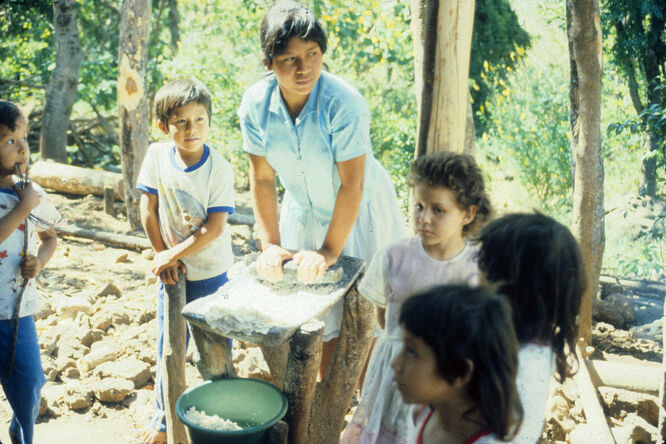Nicaragua: Pure Joy in a Humble Land
By Rick Steves
I've enjoyed many unique holiday traditions, such as Santa Lucia Day in Scandinavia, and St. Nicholas Day in the Netherlands and Belgium. But one of the most memorable was far from my usual European stomping grounds.
La Purisima is a uniquely Nicaraguan festival held on December 7, celebrating the Immaculate Conception of the Virgin Mary. The holiday — Nicaragua's biggest of the year — is a mixture of Halloween, Christmas, and even a little bit of the Fourth of July. It's a time when it's great to give and it's great to receive.
Similar to trick-or-treating in the United States, children go from house to house, asking "What is the cause of so much joy?" The homeowner says, "The conception of Mary," and gives out presents or sweets. "Hooray for the Virgin," is the delighted response from the kids.
I once celebrated La Purisima in León, Nicaragua's second-largest city, a stronghold of its Sandinista revolutionary movement in past years and a place that loves to celebrate the Virgin Mary. It throws some of the best La Purisima festivities in the country.
The festival kicked off in front of the cathedral, an imposing structure dark with tropical rot on the outside, and bright with the decorative trappings of Catholicism on the inside. The cathedral seemed too grand for a humble provincial town like León. Locals say the Spanish designed it for Lima (Peru), but the colonial delivery people got the cities mixed up, and Lima's cathedral ended up here in León.
The town's children were out in full force, filled with anticipation. At 6 p.m., the bishop — with a gaggle of government big shots — made a statement and yelled the first "What is the cause of so much joy?" Then the church bells peeled, firecrackers rolled like angry tumbleweeds through the streets, children launched bottle rockets, and families poured through the city going trick-or-treating. People opened their houses, and inside you could see lighter-than-air decor honoring the Virgin Mary. And the children rampaged for little treats.
With my phonetic cheat sheet, I went to a house and chimed, "Kien cowsa tanta alley gria?" It worked, and I was given two ugly-but-tasty, thumb-sized bananas. (Norteamericanos in Nicaragua come home understanding the trade-off between good looks and good taste in bananas. If all you've ever had are the big, perfectly formed, yellow ones found in American grocery stores, you haven't really tasted a banana.)
The cathedral square was the magnet for all the strolling families. As sculpted lions looked down from their pedestals, a street raffle entertained the crowd. I pitched in, hamming things up with the mic to help the salesman sell his tickets. He called on me to dig into the big tin can and pick a numbered Coke cap. I drew 159…it was my number! The crowd seemed amused as I waded through the prizes and chose a big desk clock shaped like a wristwatch — it was so tacky it would have to end up in my office.
An old woman, who was balancing what seemed to be a candy shop on her head, explained that historically La Purisima was the people's protest against the Spanish elite. The poor could make huge, insulting, papier-mâché dolls of aristocratic ladies. Indians could express their inward rebellion with humor — and stay safe, since the Virgin Mary was ever present as the protector of the people. "That's why we have such a devotion to her," the woman said.
A local friend gave me a good explanation of the Latin American love of Mary, adding a dose of liberation theology. "Even more blessed than Mary — who carried Jesus in her womb — are those who hear the word and put it into action. We can't be so pure; we can't be the mother of God. But what we can do, that Mary did, is hear the word and act. Mary is not a goddess. She came from simple people…people just like us."
Late that evening, I passed up a cool beer in our hotel's leafy courtyard and took a trip into the throbbing disco across the street instead. My glasses fogged up the moment I entered. I didn't care; it was hot and humid outside anyway. Stepping into the mass of dancing people had me drenched in sweat. The wall danced with giant MTV images of great Spanish-language pop stars singing love ballads and the latest American rock songs. This was a hot spot in a hot spot. Getting out was like making my way through an overcrowded bus rolling over a cliff.
Finally returning to my hotel, I thought about the many Christmas traditions I've witnessed in my travels. Considering all the happiness I experienced that day in such a humble land, I couldn't help but think, "What is the cause of so much joy?"

